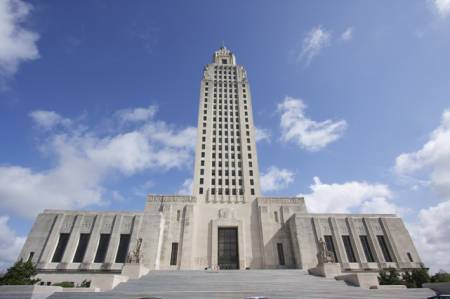
In many ways, this special session was always going to be about two major issues: 1) passing a budget for the new fiscal year, and 2) passing legislation to change civil litigation laws, or “tort reform,” as it’s often called. And throw in some efforts to add, extend, and sweeten various tax credit and incentive programs, and that pretty well sums up the session.
Arguably, the biggest accomplishment legislators were able to pull off was their successful effort to change civil litigation laws with regard to payouts for victims of vehicle accidents. The goal of all of that was to lower auto insurance rates, and while various factions squabbled over how much rates might really go down, in the end legislation passed.
The fact that it received overwhelming legislative support, and the governor indicated he would sign it, are signs that the legislation turned out to be a bipartisan effort. It’s likely neither side was completely happy with the bill, but all figured it was the best they could manage given the political circumstances. Still, it was the culmination of decades of sparring over the issue and an important “first step,” as supporters maintained after the vote.
The budget turned out to be a much less contentious issue. Though the economy has taken a devastating blow because of the COVID crisis and the dwindling demand for oil, you would hardly know it from looking at the budget. That’s because it was loaded with almost a billion dollars of federal aid that officials are hoping will get the state through the fiscal year that started July 1st.
Lawmakers called it basically a “standstill” budget from last year, though there were cuts in some areas and enhancements in others. The disappointment in education stemmed from the fact that the year started with expectations for additional funding for early education, K-12, and higher education. That didn’t happen the way most were hoping. Federal dollars did indeed fill a lot of holes, but they were largely to cover costs associated with the massive disruption of education or to gear up for future school closures.
One positive thing is that the corona virus, which so clearly exposed the state’s digital divide, may be the catalyst for helping close it. Not only did legislation pass during the session to help expand access to broadband internet, close to $50 million in federal CARES Act dollars is also being targeted to technology for students, faculty training in digital delivery of education, and overall enhanced connectivity.
One concern as the session unfolded was the large number of bills that included fiscal notes with large amounts of money targeted to tax cuts, tax credits, and incentive programs. Many were billed as responses to the COVID crisis. That’s debatable since much of the tax relief those bills promised came later rather than sooner, but nonetheless, the dollar amounts in the earliest iterations were staggering.
As it turns out, fiscally-responsible heads prevailed. Only two big-ticket items passed. One would allow an $11 million tax break for casinos that use promotional play dollars to attract customers. The intent there was to make Louisiana gaming venues more competitive with casinos in neighboring states who have the same tax advantage.
The other was a one-year suspension of a portion of the state’s corporate franchise tax targeted directly to smaller corporations. The price tag is about $7 million, but more than just a tax break, this one also represents a structural tax reform that, if made permanent, would improve Louisiana’s tax system. Most of the other tax changes have minimal immediate impact, though some will begin to rise in subsequent years.
While it’s been a strange legislative year, it’s likely not over. Lawmakers did pass a budget, but the fiscal waters going forward are still muddy and there’s an expectation that more federal relief should be coming to states and that will need to be allocated and spent.
What would that mean? Yes, probably another special session.
